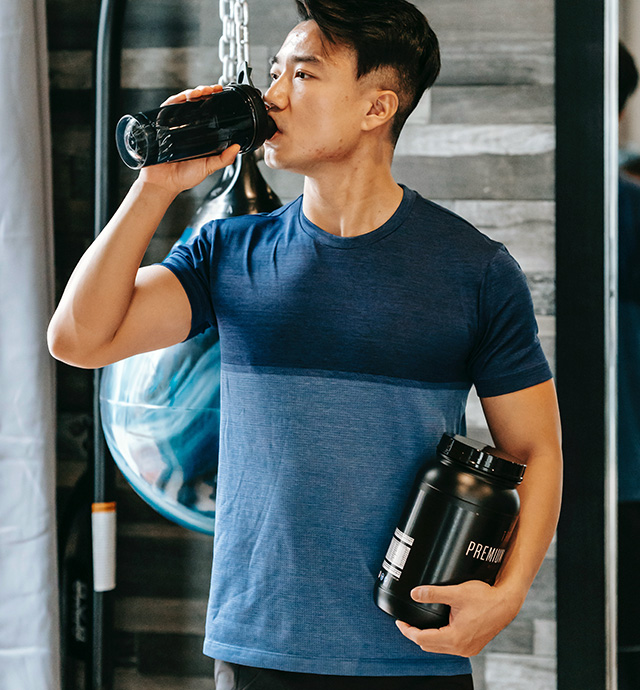A pre-workout is a type of supplement designed to give an extra boost of energy during a workout, but if you are not an athlete and are not doing a workout, are they of any use?
 pre-workouts give you an energy boost
pre-workouts give you an energy boost Why are we talking about Pre-workouts?
There is a growing trend for people to use pre-workout when going to school or work, not prior to exercise as they are designed for. Often these people are not even sure what ingredients the pre-workouts contain, or why they are taking it. So, should they be consuming pre-workout, and are there any potential risks involved if they do?
What are they designed to be used for?
Pre-workouts are designed to boost energy and enhance performance in the gym or during a training session. Because they allow you to work out at a higher intensity, they may also help to lose body fat. The bottom line is they are designed for use when doing exercise training not just being at work.
What they contain
It is important to know what is in the pre-workout that you are consuming because each of them is slightly different, and not all the ingredients are safe to consume.
Which ingredients to look for
- Caffeine – this popular stimulant is a key ingredient in most pre-workout supplements. Most of the rush you get from pre-workouts is from the large dose of caffeine. The amount of caffeine, and the form it is in, varies greatly between products. You should look at the total amount of caffeine (per serve) in the pre-workout. The upper limit for safety is 400mg per day, too much can disturb sleep and adversely affect the heart.
- Vitamins and minerals – most pre-workouts will contain a few vitamins and minerals, often B vitamins which are important for converting food and nutrients into energy, and Vitamin C. Added vitamins and minerals are generally safe but are not of any benefit unless you are already deficient.
- Creatine – this is a well-researched and beneficial supplement for helping to build muscle. It is found naturally in meat products. A 5g dose of creatine is ideal for muscle building, though most pre-workouts contain less than this.
- BCAA's – a few amino acids can be beneficial for muscle building, but there is not convincing evidence of continual use of BCAAs.
- B-alanine – helps increase the duration of high-intensity exercise, but there are side effects such as tingling in the fingers. There is a large range in the amount of B-alanine in pre-workouts - you need to be getting at least 4g per day to get any benefit during exercise.
- Citrulline and Nitric Oxide – may improve performance by helping blood flow, and it is safe to use.
Ingredients to avoid
- DMAA (1,3-Dimethylamylamine) or DMHA (Dimethylhexylamine) are not safe and are banned substances and can return a positive drug test. They can increase blood pressure and lead to shortness of breath and tightening in the chest, increasing heart attack risk. There are still many supplements sold online containing these, including Gorilla, Psychotic, Wrecked and the Curse.
- Synephrine is a banned substance (Disorder) – it can increase blood pressure and the risk of stroke.
- Many ingredients of a herbal nature (extracts), these are highly unregulated and often not tested for safety.
Do Pre-Workouts Work?
There is some evidence that pre-workouts can be beneficial to improve aerobic capacity, endurance, and training volume.
If you are not using pre-workouts for exercise, most of the ingredients are of no benefit and consuming a pre-workout is unnecessary and a waste of money. The ingredients that may be useful can be obtained from many alternate sources. For example, a caffeine dose can be obtained from drinking coffee, tea, NoDoz, cola, and energy drinks. The vitamins, minerals and amino acids can be obtained from a balanced diet, or by using more targeted supplementation for a purpose.
If you are using pre-workout for exercise, individual supplements are only as good as the ingredients they contain, so always check the label. Pre-workouts can be effective depending on specific ingredient amounts, proper usage and timing, and your fitness goals. Seek further advice on this from a dietitian.
Final Recommendations
- Choose a pre-workout that contains less than 200-250mg of caffeine per serve and read the label for how many scoops to use so you don't go over the limit of 400mg in a day.
- Musashi and Body Science are two products that are tested for additional ingredients that may not be on the label, so are safe to use, especially if drug testing is conducted at your workplace.
- When using a pre-workout that contains creatine or B-alanine, it is only beneficial if taken before a gym workout or exercise session. For gym goers or athletes, creatine and B-alanine can be beneficial, but it is challenging to choose a product that contains the correct dose without overdosing on caffeine. You are wasting your money if you are just using it for the caffeine fix at work.
- Avoid pre-workouts that contain the listed unsafe ingredients.
Related Pages
- Pre-workout Guide — What Are They and Are They Worth It?
- Guide to Athletic Supplements
- Building Muscle: Do You Need Supplements? — some important tips that will help you achieve your muscle mass gain goals in the most sensible way.
- Amino Acid Supplements — are they necessary?
- Creatine Supplementation for Teenagers
- Using Bodybuilding Supplements To Build Muscle Mass
- Go Shopping in the Supplement Store


 Upcoming Events
Upcoming Events